Giancarlo A. Xompero
Private Memorization Editing: Turning Memorization into a Defense to Strengthen Data Privacy in Large Language Models
Jun 09, 2025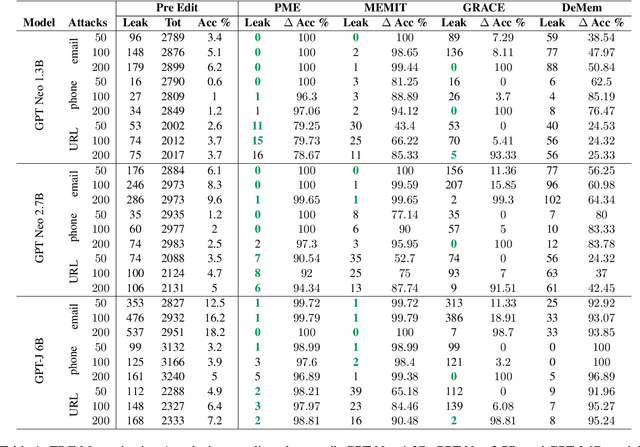

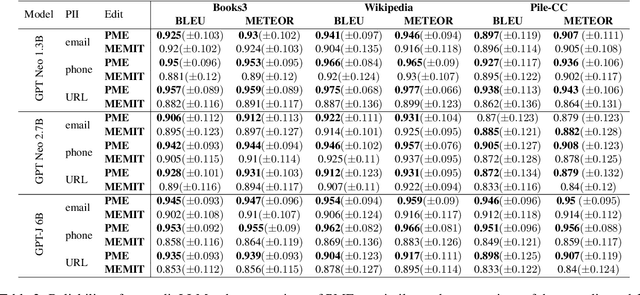
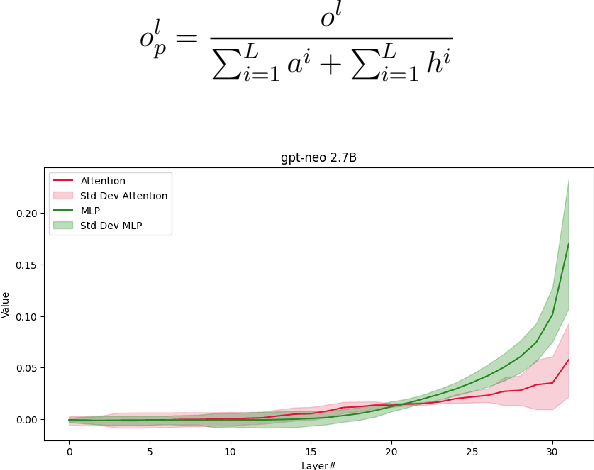
Abstract:Large Language Models (LLMs) memorize, and thus, among huge amounts of uncontrolled data, may memorize Personally Identifiable Information (PII), which should not be stored and, consequently, not leaked. In this paper, we introduce Private Memorization Editing (PME), an approach for preventing private data leakage that turns an apparent limitation, that is, the LLMs' memorization ability, into a powerful privacy defense strategy. While attacks against LLMs have been performed exploiting previous knowledge regarding their training data, our approach aims to exploit the same kind of knowledge in order to make a model more robust. We detect a memorized PII and then mitigate the memorization of PII by editing a model knowledge of its training data. We verify that our procedure does not affect the underlying language model while making it more robust against privacy Training Data Extraction attacks. We demonstrate that PME can effectively reduce the number of leaked PII in a number of configurations, in some cases even reducing the accuracy of the privacy attacks to zero.
MeMo: Towards Language Models with Associative Memory Mechanisms
Feb 18, 2025Abstract:Memorization is a fundamental ability of Transformer-based Large Language Models, achieved through learning. In this paper, we propose a paradigm shift by designing an architecture to memorize text directly, bearing in mind the principle that memorization precedes learning. We introduce MeMo, a novel architecture for language modeling that explicitly memorizes sequences of tokens in layered associative memories. By design, MeMo offers transparency and the possibility of model editing, including forgetting texts. We experimented with the MeMo architecture, showing the memorization power of the one-layer and the multi-layer configurations.
Enhancing Data Privacy in Large Language Models through Private Association Editing
Jun 26, 2024



Abstract:Large Language Models (LLMs) are powerful tools with extensive applications, but their tendency to memorize private information raises significant concerns as private data leakage can easily happen. In this paper, we introduce Private Association Editing (PAE), a novel defense approach for private data leakage. PAE is designed to effectively remove Personally Identifiable Information (PII) without retraining the model. Our approach consists of a four-step procedure: detecting memorized PII, applying PAE cards to mitigate memorization of private data, verifying resilience to targeted data extraction (TDE) attacks, and ensuring consistency in the post-edit LLMs. The versatility and efficiency of PAE, which allows for batch modifications, significantly enhance data privacy in LLMs. Experimental results demonstrate the effectiveness of PAE in mitigating private data leakage. We believe PAE will serve as a critical tool in the ongoing effort to protect data privacy in LLMs, encouraging the development of safer models for real-world applications.
Every time I fire a conversational designer, the performance of the dialog system goes down
Sep 27, 2021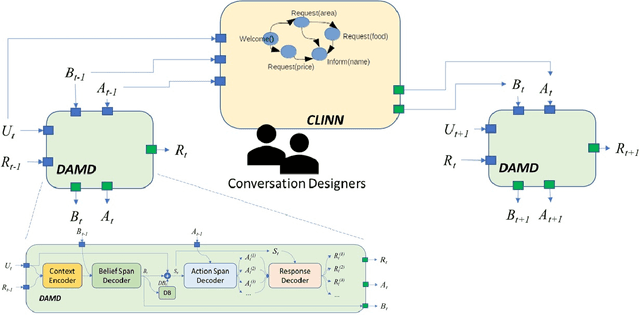
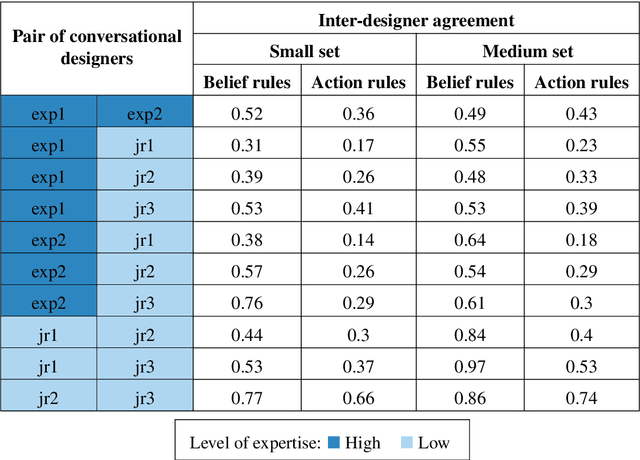
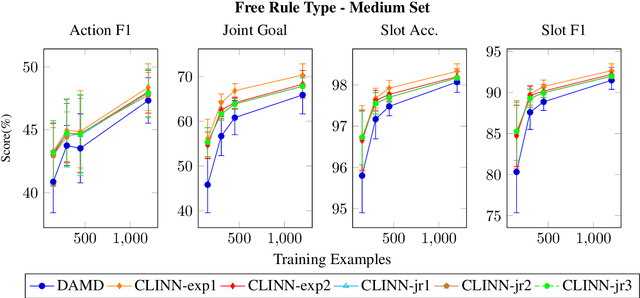
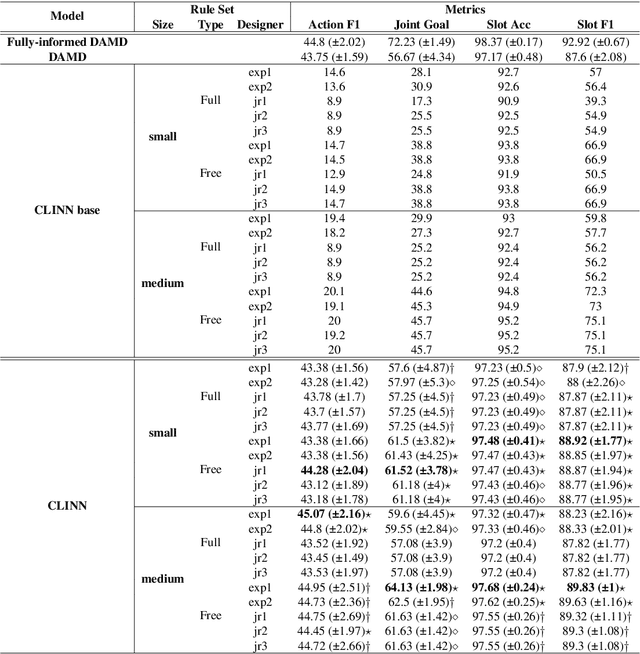
Abstract:Incorporating explicit domain knowledge into neural-based task-oriented dialogue systems is an effective way to reduce the need of large sets of annotated dialogues. In this paper, we investigate how the use of explicit domain knowledge of conversational designers affects the performance of neural-based dialogue systems. To support this investigation, we propose the Conversational-Logic-Injection-in-Neural-Network system (CLINN) where explicit knowledge is coded in semi-logical rules. By using CLINN, we evaluated semi-logical rules produced by a team of differently skilled conversational designers. We experimented with the Restaurant topic of the MultiWOZ dataset. Results show that external knowledge is extremely important for reducing the need of annotated examples for conversational systems. In fact, rules from conversational designers used in CLINN significantly outperform a state-of-the-art neural-based dialogue system.
 Add to Chrome
Add to Chrome Add to Firefox
Add to Firefox Add to Edge
Add to Edge